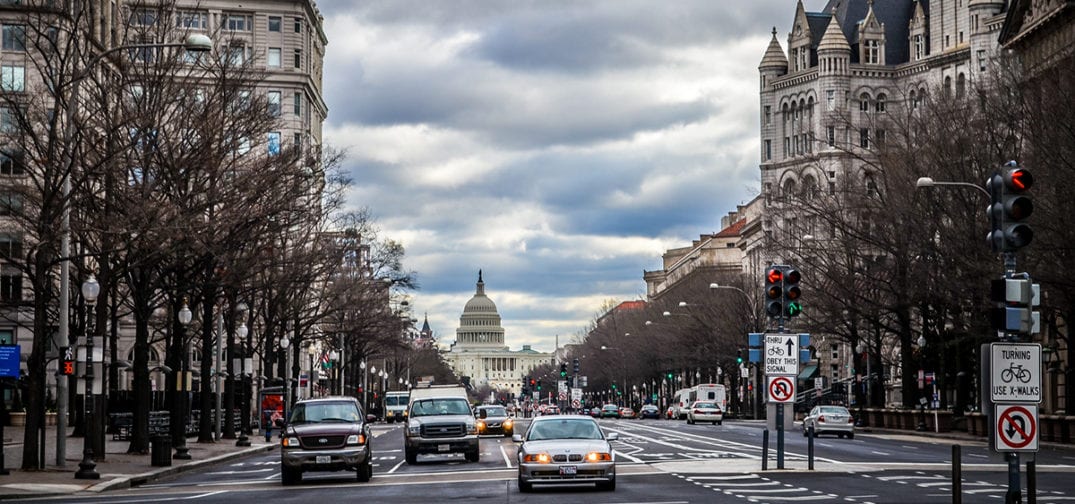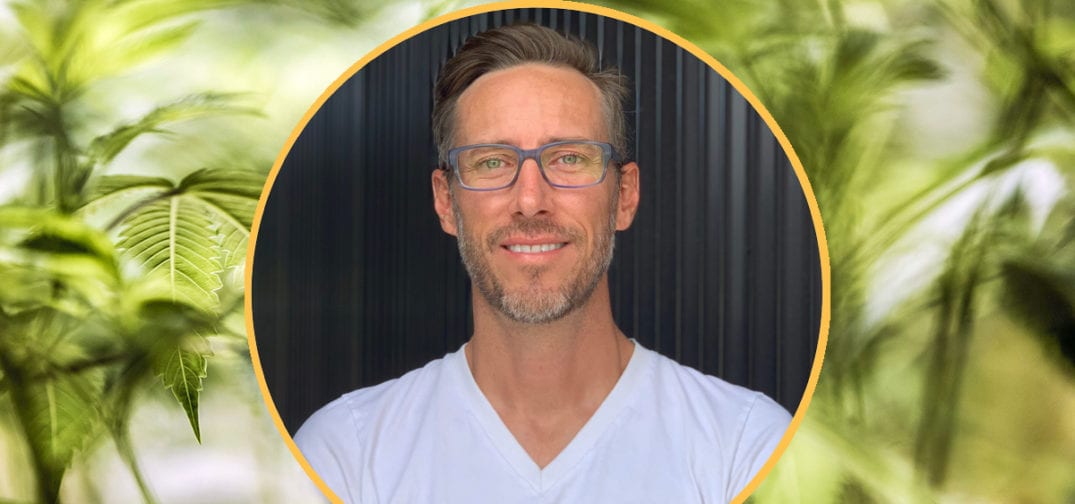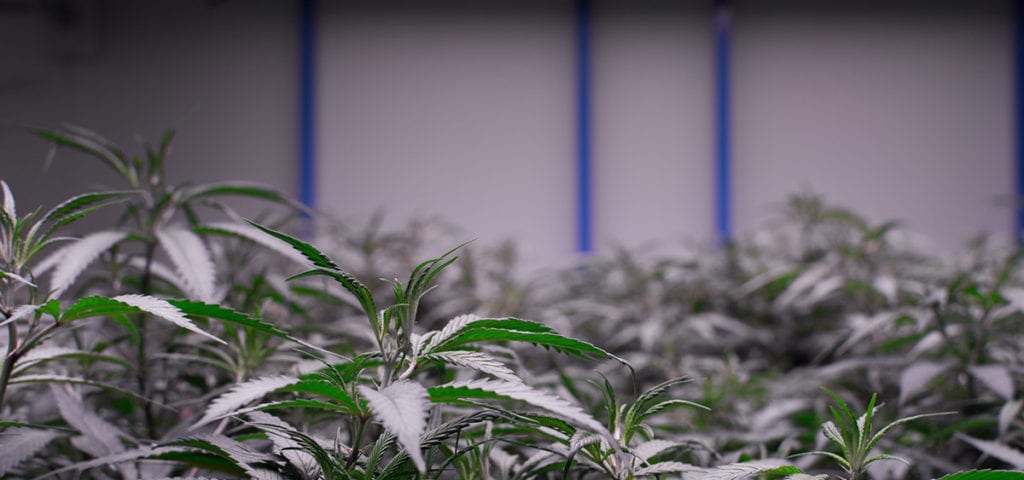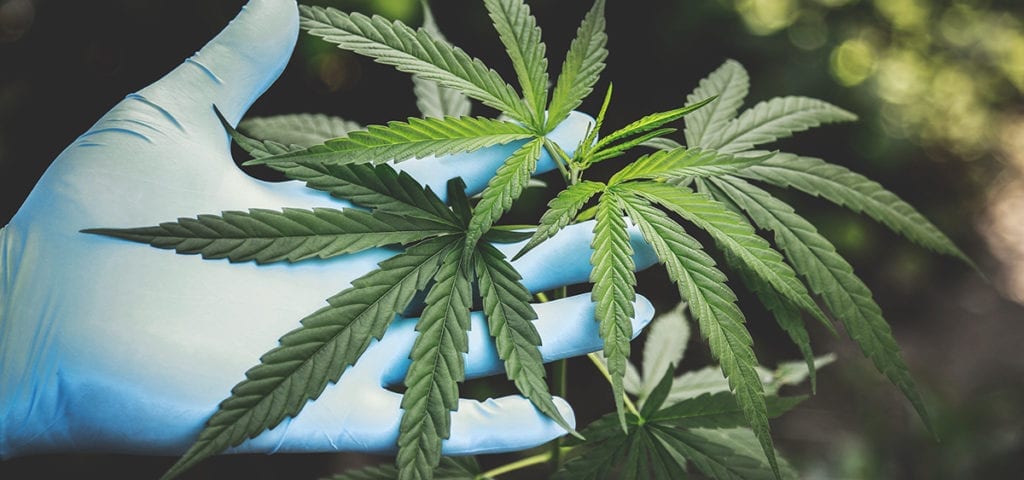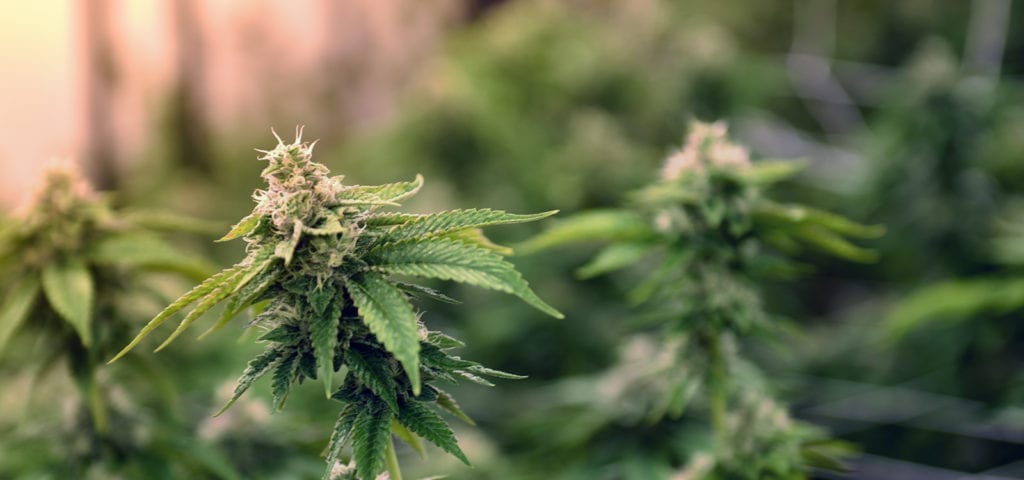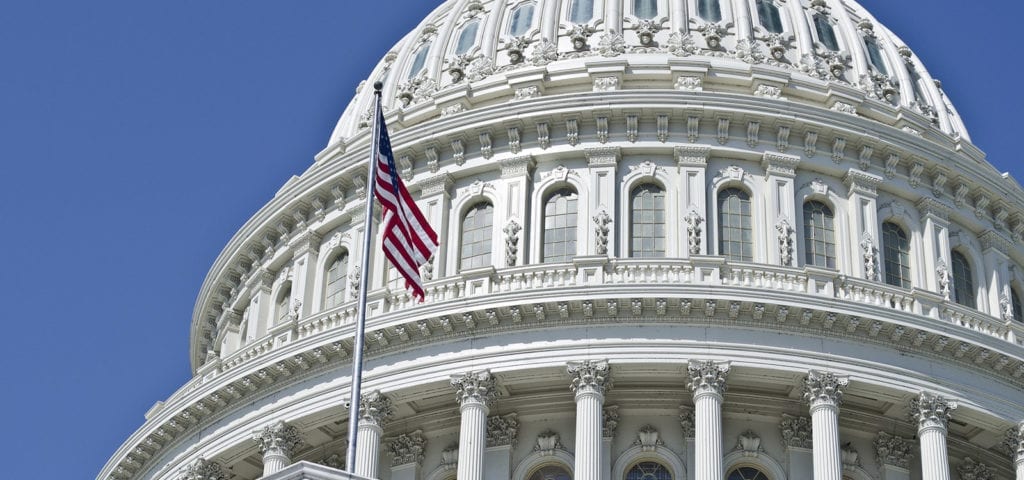Travis Howard is the founder and Chief Strategy Officer for Shift, a Colorado-based cannabis producer and product manufacturer.
Travis recently joined our podcast host TG Branfalt for a conversation about his experience as an attorney in the early days of Colorado’s cannabis market, his transition to entrepreneurship, and the journey of founding several cannabis companies. In this interview, Travis offers a candid look at the current state of cannabis, talks about the difference between the industry’s earliest entrepreneurs and the major corporate investments that are becoming more common, what he expects from the cannabis movement in the coming years, and more!
Tune in via the media player below, or scroll down to read a full transcript of this week’s Ganjapreneur.com podcast episode.
Listen to the podcast:
Read the transcript:
Commercial: This episode of the Ganjapreneur Podcast is made possible by 420-friendly service providers in the Ganjapreneur business directory. If you need professional help with your business, from accounting to legal services to consulting, marketing, payment processing, or insurance, visit ganjapreneur.com/businesses to find service providers who specialize in helping cannabis entrepreneurs like you. Visit the Ganjapreneur business directory today at ganjapreneur.com/businesses.
TG Branfalt: Hey there. I’m your host, TG Branfalt, and thank you for listening to the Ganjapreneur.com Podcast where we try to bring you actionable information and normalize cannabis through the stories of ganjapreneurs, activists, and industry stakeholders. Today I’m joined by Travis Howard. He’s the founder of Shift, who also is an attorney, helped the first wave of cannabis companies in Colorado.
He founded Kind Reviews, now PotGuide, and Green Dream Cannabis in Boulder in 2009 and 2010, respectively. In addition to his consulting business, he took part in various ancillary startups, including patient education, staffing, physician services, and wholesale exchanges. A ton of hats in this space. How are you doing this afternoon, Travis?
Travis Howard: I’m doing well, Tim. Thanks for having me. Appreciate you.
TG Branfalt: Really, really delighted to have you on. You’ve a huge breadth of experience. But before we get into the details about what you’re doing now, tell me about yourself. How’d you end up in the cannabis space?
Travis Howard: Well, I like to say we learned our macro-economics and I’ve been a demand side cannabis guy for most of my life. In 2009, dispensaries started opening up and I was interested in getting in there. I’ve had neck and shoulder issues from various car accidents and football, and the rest of it, talked to a doctor, qualified as a patient, and started meeting some of these folks and wanted to help spread the word. Also, there were some that weren’t very reputable or good. That all led into Kind Reviews that I founded with my brother. One thing led to another. I saw what was happening and I wanted to participate and found some ways in and some folks to work with on all the various items that you had listed previously.
TG Branfalt: When you went to law school, was that your focus? Did you say, “Hey, I want to focus on cannabis, or the cannabis industry,” as it ended up?
Travis Howard: No, not at all. The cannabis industry, to me, it’s just another outcry of all entrepreneurial pursuits. I went to law school specifically to become a better entrepreneur and to become a business attorney that could help other people entrepreneur. I love cannabis, and I love the industry. I think there’s a lot of stuff that we still have to do, from getting people out of jail, to full normalization. But underneath that, I really am passionate about entrepreneurialism, and how if we create more entrepreneurs, we’re unplugging people from the corporate system. They’re no longer batteries, they’re their own machines. They’re making good decisions for their employees, for their communities, because they need those people to support their business.
I just think the more entrepreneurs we have, the better community stewards we have, the better communities we have for our kids to grow up in. I think it’s a more healthy economy, if people diversify their portfolios. I don’t think we should be running the size of our economy off of just Fortune 500s, and we’ve seen that move up in the scale. That was my drive in the middle 2000s. The early 2000s when I went into law school was, I wanted to empower myself and others through entrepreneurialism. That just bled into cannabis because when I was practicing law, I got out of law school, and I went and helped my wife and her parents’ company. I was working with special needs speech therapy, and they were going through some transitions. I went down there and did some director of operations internationally, and ended up co-CEOing on the business there.
When I came out of that and moved back to Colorado, I hung my shingle to do the business law and the people that were calling remember all the businesses were crashing, there weren’t a lot of people starting new stuff. This is 2008, 2009 and early 2009 to mid 2009, I started getting a lot of calls into my law office for people that wanted to come from the underground and black market into the, at that time, technically gray market, although it really was white under the Colorado constitution.
But they were looking for leases, partnership deals, operating agreements, and everything that you would want in a normal business. But most of the big business law firms weren’t touching that platform. The early activists attorneys that laid the groundwork for us … At that time, there was the Rob Cory’s in the war and Edsons, and many more that … My apologies to them for stating their names, but they … All those guys that were out there fighting for so many people, they were predominantly criminal lawyers, constitutional lawyers, lawyers that we needed in the space, but there weren’t a ton of business attorneys that were willing to step up.
Vicente Sederberg at this point is one of the more famous law firms. Christian Sederberg went to law school with me. He was a year before me, and he had been focused on business. There was just a couple of us at the time, and I started meeting all these folks that were frankly getting rooked. The irony here, Tim, is that at that time period, you had a lot of business people that were willing to take risks. The ones that I saw, were predominantly from the real estate, either brokers, developers, owners, that … You remember that the economy was tanking, so auto was down at the time, and real estate and development was down at the time, generally in the economy.
You had a lot of people, that had previously been in the real estate world, that were now looking to join forces or move their real estate property or some of the cash that they had saved that they were going to put into a development into cannabis. Well, these folks coming into the cannabis were still called black market or illicit. The people that the business community had been looking down their nose at.
But what I actually saw in 2009 and early 2010, was a whole lot of real estate sharks preying on good natured mom and pop people that wanted to come in, and that is where I actually stepped in for some of my clients. I don’t want to overstate what I did. I was just one small cog in the wheel. But for my clients, we worked on a lot of bringing them up to equal representation and an acumen for these new partnerships that they were forming.
TG Branfalt: You’re saying you hung your shingle, which is one of my favorite turns of phrases. How did people find out about Jimmy? Was it word of mouth? Was this something that you actively advertised and gave out your card to a cannabis business owners?
Travis Howard: I did. It was interesting because, at the same time I was doing that, my little brother had called me and said, “Listen.” He’s like, “I bought these domain names, I had Colorado marijuana reviews, and I have Kind Reviews.” He goes, “I was out in California visiting a friend, and somebody mentioned this website where you could check out if the weed was good.” I was like, “Wait, what?” I’d come out of tech earlier, and during law school I’d started a company called Dealers Link with a couple of my friends that was a software exchange in the auto industry.
Tim called me, and he said, “I know you on tech, can you help me do something here?” I looked it up, and I was like, “That would be awesome.” I’d already got my patient card, let’s go and review these things, start this as a business. As I was going in and meeting dispensary owners, and asking them, buying samples and telling them that I was going to review this stuff online, sometimes I did it blind, sometimes I let them know so that they could give me any background information. I always gave an honest review.
But that’s when they’re like, “Well, who are you? Why are you doing this?” “Well, I’m a business attorney here in the area, but I’m passionate about cannabis and this is something that I’m doing in my spare time.” Well, three, four times being in there, all of a sudden those individuals were calling me back, being like, “Hey, I know you mentioned you were an attorney, would you be willing to work with me? I can’t get anyone else to take the business.” Then word of mouth spread. This was a close knit community. This is back when dispensaries were open under zoning laws. You had a business license, or a sales tax license, and that was it.
The state of Colorado hadn’t written their regulations yet, and growers were growing in their basement with patient cards, and that was what we call the backpacker days, where they were packing in. They’d show up with their backpack with five pounds a weed, and go down Broadway, where we were calling Broadsterdam or The Green Mile at the time. “Hey, do you want to buy any of my wares?” It was traditional guerrilla marketing at the time. The word spread through those individuals that I was open for business and willing to do work.
Truthfully at that time, I probably could’ve served a lot more clients, but it was hard with conflict of interest because everybody knew each other, everybody was working together. We just needed more attorneys to come in, and luckily a lot of brave souls did come in, because back then the Bar Association had issued no information on whether they wanted you doing this, not doing this, whether you could be a patient, use cannabis of course. All that stuff, at this point, has been settled with the Supreme Court and the Essex rules and all that stuff.
But, I remember a time talking to my wife and rereading that oath of office I took when I became an attorney, and I was reading it and I was like, “I don’t know if I’m supposed to be doing this, but this oath tells me that where there is the need, it is our duty and responsibility.” I looked at my wife, Beth, and I said, “I can’t imagine, aside from a criminal death row case or life imprisonment which could result out of some of this trafficking, where an attorney would be needed more.”
There’s a conflict between state law and federal law. They don’t know what’s going on. I was like, “I think we have to do this.” I just followed my heart and my gut on that, and that oath that I took. Then luckily, the Bar Association eventually saw it the same way, and said, “Yeah, we do need attorneys in this industry. This is something that’s going to be important.”
TG Branfalt: Can you describe to me the learning curve in those early days when regulations are being released? Right? You were just having to learn on the fly. Can you just tell me how you managed that?
Travis Howard: Oh my goodness. I had three desks in my office with every piece of paper that came out of the Marijuana Enforcement Division, and that 2010 run up to that … In August 2010, is when everybody met down at the dog track, as we all called it. It was an old … the racing track where they had put their first offices and everyone got in line to submit their first applications. But the rules were coming out. You were reading the Senate bill, you were reading the House bill, HB1284. I’ll never forget those, that letter and number combination.
I lived and breathed it. But on top of that, you had all these local districts. I think what most of the attorneys did was focus on Denver and some on Boulder, because Boulder had its regulations, its first version, before the State had regulations, which caused a whole another slew of stuff in Boulder that we later had to clean up as a community. But it was difficult. We were highlighting stuff every day, you were checking the website to see if any new clarifications … I remember I had Dan Hartman at the time, Mr. Seckman, there were numerous people, the MED, that I had their cell phone in my cell phone on speed dial, and I was calling and asking questions.
Back then, they picked it up directly and answered questions for the attorneys because they knew if they gave the attorney the information, that it was better than taking … that I could talk to my 40 clients versus having all 40 call them directly. It was just a lot of working together. I know that over the years, some of the industries felt like the MEDs worked against them, some, for them, the rest of it.
But in those early days when none of us really knew exactly what was going on, I will say on the defense of the Department of Revenue, they were very open and willing to talk to us and walk through that stuff, because it was a series of landmines. A lot of people lost their businesses because of some false step that they thought that the rule said this and didn’t mean that, and this person was eligible but not. It was interesting at the time. That’s for sure. No dull moments.
TG Branfalt: Tell me about what you’re doing now about … with Shift.
Travis Howard: Shift, at this point, is a tried-and-true cannabis brand. I’ve run the gamut from doing consulting to business operation contracting. We’ve done staffing and such. But I think the industry … About a year ago, I set out to help normalize the plant. I felt like that happened, to some degree, with a lot of people. Other states coming down, I wanted to normalize the business and the respect for the industry, which is why I quit practicing and went ahead and grabbed the license so that the peer group couldn’t say, “Well, you’re just doing it as an attorney to make money. You don’t really believe in this.” They couldn’t say that. They had to look me dead in the eye and be like, “Wow. You really do believe that this is okay because now you’re an owner and you’re doing it.”
We went through all those processes about a year ago. I was like, “Look, there’s a ton of activists out there that are doing a great job. There are a lot of people that … from Steve DeAngelos and the rest of them, to the mom and pops that are in Colorado and the states around us.” Now there is this massive wave of, the last year or two years of the Canadian public companies, Wall Street, big money funds, all the rest of this stuff. Now that we’ve got both of those book ends, what do I believe in the most? What was I passionate about at the beginning, that I think that the industry still wants? That’s on the consumer side.
That’s when I really decided to push Shift with the tagline Genuine Cannabis into a CPG, a consumer good branded products that … I’ve got the same heart and the passion that any mom and pop that has been here. I mean I’ve been smoking weed since the early ’90s, I’ve been through the black market, the gray market, and now the white market. I’ve had my bank account shut down personally. You can’t get a 401(k), I can’t be do 529s because all the broker dealers can’t take me because my social security is on the black list, and all these other things.
On the flip side, being a business attorney and having worked at some bigger companies and seen the business side, I know that there’s the combination that really is going to prove valuable for customers in the long term, and that is all the heart and the love of a brand that you can trust for products that you trusted before this stuff was even in white market. For supply side, a stable business that runs like a machine, but with a heart. You can go and get a little bit of great cannabis from a bunch of different people, but can they supply your business all day, every day and take care of you, of what you need to grow your business?
On the flip side, we’ve got a bunch of these big businesses that are just throwing money and machines over the top of it, that don’t have the heart, the passion and the soul that consumers want. For me, that is genuine cannabis, that is Shift. That’s what I’m setting out to bring to the world, and we’re doing that right now in about 40 to 50 dispensaries in Colorado and we’ve got three dispensaries open in New Mexico. It’s not longterm.
We’re probably not a dispensary brand, even though we have those licenses down there. We’re really looking to be a brand that other retailers can count on, and probably if they own a dispensary, they’re passionate about the products and the use, and they want to know that they’re going to get something from people that care as much as them. That’s the promise I’m making to retailers and the customers both.
TG Branfalt: You mentioned that you’re also in New Mexico, and now that you’ve experienced these different markets, and in various formats, California, Colorado and New Mexico, Maryland, and handful more via application and regulation work, can you tell me about some of the key differences that the average consumer or the average citizen might not understand about how … the differences between the states?
Travis Howard: Yeah. I think the main difference is the constituent that the program is supposed to support and take care of. When you look at New Mexico, and certainly no offense to their Department of Health, they’ve busted their button, tried very hard to produce good results. It’s difficult as a business down there because it’s clear the program is set up for patients. Everything was set up for the medical side, for the medical patient, for their needs. That’s where the program stemmed from, and that’s the foundational work.
When you flash forward to some of the other states that we’ve worked in, especially East Coast and Midwest states, it is clear who the programs are built for regardless of anything they’re touting about the patients. This is the Department of Revenue. That is the constituent, that is who they are working for. It’s about generating tax revenue, it is about generating profits in the corporations, it’s about ensuring that the people that come in to start those businesses, that get awarded the licenses, have the deep capital pockets that acumen in the connections potentially to Wall Street. It really is for the business community.
Now, that’s not to take away and say. In some of those states, that program also dovetails and works really well for the patients or for the recreational consumers. But in some programs, you’d get online and Google unhappy medical patients, and you’ll find the states that the programs aren’t really working for the patients but are working really well for certain businesses. I think probably one of the shining examples of that is Florida, where you have a handful of people that have those early licenses.
Most of those licenses have flipped for 40, 50, $100 million to public companies, and there’s patients all over the state that don’t have, and for the longest time didn’t have, access to enough product because a lot of those licenses hadn’t even opened up and started producing, or opening up dispensaries across the board, when clearly there were a lot of other businesses that were willing and ready to open if they could get licenses, but no more were issued. It’s easy to throw stones in the industry. Everybody’s got somebody that they’re mad at, a scape goat, and I try not to do that. It’s nothing little less than I teach my kids, like, “Try to look at the other side, try to put yourself in their shoes.”
But I haven’t been a patient myself for many years. Thankfully, I’ve worked through some of my issues, but … I don’t know. It’s tough. But I think that’s the major discrepancy between states, is this about the patients or is this about the business community, a.k.a, the Department of Revenue, who’s collecting revenue. But at the same time, Tim, we all have to be honest even as activists and people who care about this. This country normalizes things through profits.
I knew it back in 2010, that it wasn’t going to be Shangri-La, it wasn’t going to be this perfect Kumbaya moment, that if we wanted to actually get what we really wanted, which was the world treating this as a plant, like anything else, and putting it out there, that we were going to have to step into the language that the world, that this western society normalizes things through, and that’s profitability. If the thing couldn’t produce profits, if it couldn’t produce results for Wall Street, that we weren’t going to get actual normalization.
It was sad, but I felt like it was true then, and I feel like it’s true now. That doesn’t mean that I love it, it doesn’t mean that I wanted it to go this way, but I was never confused about how I thought it was actually going to work out. If we were going to have 50 states with legal cannabis, I didn’t think it was going to be, well, grow it at home and just let it be. I just never thought that that was how it was going to make it to all 50 states, unfortunately.
TG Branfalt: It’s an honest and astute observation, man. Just today, the AP, the Associated Press, released this of investigation, noting that when recreational comes to medical states, that the medical programs just plummet the patient health plan — I mean, isn’t that to be expected, and what are the … what’s going to happen? What’s the negative … What negative things are going to happen as that progresses?
Travis Howard: I’m certainly not clairvoyant, but I think there’s a couple things that I’ve witnessed and what I feel like is going to continue to transpire. Certainly, we know that of the original patient populations, you’ve got really what I call the OTC market, which is people that … they are treating themselves, but they’re treating themselves for items that are probably less, on a grading scale, than what the program really thought of when they made the patient program.
Then you’ve got the patients that were clearly identified with the inception of the program, and then you’ve got more recreational users that have been able to talk to their doctors and the doctors are like, “You know what? I feel like this is a fairly benign substance. If this guy’s telling me that it helps him, I’m fine with it.” You’ve got these three groups. When recreational does show up in an area, of course that first group is probably going to be like, “Well, I don’t want to go through the rigmarole of going to the doctor if I don’t have to.” The OTC market might stay as a patient, they might not, because the recreational team is able to move forward.
But what I think, I’ve seen a lot, is that when the recreational comes in, the State obviously … It doesn’t look good to have a high tax and penalty on medical patients. You bring in children with afflictions, you bring in adults with cancer, these sorts of things, and you set them on the stand and then you put them on the news and the State is trying to tax them. That just doesn’t look right, right? It’s a bad look for politicians, they’re not going to push it. They’re going to push where they’re making their money on licenses, tax, excise, the rest of it over to the recreational world.
Well, these are communities that run on taxes, so they’re going to be incentivized to either make those licenses easier to get, the regulations easier to work with, the investors and access to capital is going to be easier, so on and so forth. If you’re a business investor and you’re coming in off the sidelines, and this wasn’t your passion project, but you wanted to see where things are going, you’re looking out there and you’re going, “Well, recreational is moving forward. I believe that’s going to look like alcohol on some level in the future. I know profits come out of there. What if the medical ends up going to the pharmaceutical companies longterm?”
Well, if you’re an investor with $1 million or $100 million, which pool are you going to put that investment in? I don’t want to fight Big Pharma, but I could be myself a new big alcohol. The capital comes into the recreational side. The advertising, the branding, the product development, and that’s not to say there’s not some really great companies out there developing on the medical side. But if you look overall on where that cash is coming in and where the people, the new workforce, is coming out of alcohol, tobacco, wine, food, and all these other things that are going on CPG side, that are coming in to do the marketing and the product development, they’re going to be in the recreational space as well, because this is where they get to build a brand.
You see all of those things. I do envision that long term, you’re going to see more investment and product offering, which is only going to encourage more OTC patients to not go get their medical license because they can get the same products or better products. Looking at Colorado as an example, well, the medical still was forcing you to be vertically integrated and doing the 70-30 rule and all of this stuff. Whereas when you’re on recreational, people that were good at retailing got to do all their retail stuff, people that were good at growing, you had the lab start to process, and you saw this division of people specializing.
Well, you go into a lot of dispensaries that had a medical side and a recreational side, and there were more products offered on the recreational side because they could buy from any of the vendors that they wanted. I see that pattern occurring across the country and I don’t think that that pattern is going to necessarily stop. I don’t know. I have a lot of hope for the people that started out in the medical world, that were willing to put their freedom on the line and come out and be that first wave of people that put their fingerprints and submitted their powers of attorney to the State of Colorado, and all that other stuff, to get those first licenses that were medical that might be stuck as mom and pops. I hope they don’t just get washed out with pharmaceuticals.
At the same time, if there is Big Pharma and they are making advancements and they can make better Alzheimer’s drugs and better cancer treatments with cannabis, why would I not want them to do that? I mean, my grandmother passed away from complications of Alzheimer’s, my father was diagnosed with Alzheimer’s. He passed away last summer. My other grandmother had Parkinson’s. I mean, these are things … My stepfather is living with cancer right now. I mean, that’s like everyone in my family. Right? If Merck or Bristol-Myers Squibb or one of these companies that we’d like to vilify as a society, is able to put 500 million into research and grow THC out of yeast and put it into a thing that helps these guys, I mean, passionate or not, who am I to stand in the way of that?
I’m not so self-righteous to say that those people shouldn’t benefit too. But I am also cognizant of the fact that a lot of people took those first steps and are going to just get mauled over when that wave comes, and they’re going to lose everything because they tied it all up. Those are the ones, frankly, they’re going to be stuck with all the 280E taxation once the Feds fix that, and then all the big companies are rolling into. It’s one of those ones where you ducked the first wave and then three waves hit you. The truth is that there’s going to be a lot of early entrepreneurs and movers that are just going to get buried and pinned to the bottom of that thing and never make it out, and that sucks. There’s no doubt, but it’s the truth of where we’re at.
TG Branfalt: Do you think that 280E, it is what has prevented maybe some of these multibillion dollar corporations, alcohol companies, things like that, from getting into some of these more mature-
Travis Howard: No.
TG Branfalt: … markets?
Travis Howard: No, I don’t think that 280E really weighs on them at all, for the amount of money that they would spend and put into that, verse the capital outlay, especially the valuations on the stocks at this point. I really don’t think that that is the issue. I think there’s probably a handful of issues. Some of them are worried about brand tainting, and what does their community, how much of their sales are in the Bible Belt, and if something comes out and they’re public and they need to be disclosing this stuff. I think there’s some banking and credit card and FinCEN type stuff that probably keeps them out.
But when you’re looking at Colorado, why aren’t the pub codes here? Well, it’s because Hickenlooper said, “No.” I mean, flat out. I mean, I understand why in 2010, when the regulators were talking to everybody, why they didn’t want outside and public money in that stuff because we are one of those first movers. But by the time two, three, four states had gone after us and they had allowed out-of-state investment and public company investment and such like that, and Colorado just stood the ground and said, “Nope, we can’t do it. It’s the federal government.” It was just a cop out, and I think it was a way for some people in power to try to keep the industry in Colorado under wraps and under their thumb.
But I think Mr. Polis is quite aware. Where things are going this November, I think you’ll see a giant wave. All right? It’s been a disservice to a lot of folks out there that, that we’re able to put in their first 50 or $100,000 and get a dispensary open, and there was only a certain amount of independently wealthy people in Colorado that had an appetite for cannabis, and those people invested in certain companies. You saw LivWell go through the roof, and you saw Native Roots go through the roof, and you saw other companies that were able to put in and have that kind of cash and capital.
But if you didn’t have access to that person, and once the appetite for Colorado got invested into other places, you watch these other states, the Johnny-come-latelys, be able to go to a fund that’s based out of San Francisco or New York or Delaware or Connecticut, and bring in $50 million. The folks in Colorado that had bootstrapped up to three, four dispensaries, they just didn’t have the ability to do that. I am very glad and hopeful that some of that capital will come in and reward some of those good, hardworking people that did make it through the fight.
On the flip side, I’m sure there’s plenty of people that would take issue with what I just said, that are longtime activists and being like, “Nope, they’re going to come in here and they’re going to steamroll everything.” Well, that’s the other side of the coin. Again, it’s back to what I said, “What’s the reality?” There are going to be some good people that are going to get screwed in this, and there are going to be some good people that are going to get their final saving graces and be able to compete and keep the heart of this industry, from 2009, 2010 in Colorado, alive. But, as with anything, you swallow some good, you get a little bad. I’m not the arbiter of that, but that’s what I see happening.
TG Branfalt: I mean, you’re a very well-spoken, very super intelligent guy. Tell me about moving from being a cannabis lawyer to becoming a CEO, and what some of those challenges were, and how having that legal experience and that legal mind give you a leg up.
Travis Howard: That’s a good question. I appreciate the compliments. I’m just a guy out here learning on the street with everybody else. I don’t think there’s anything special about me except that-
TG Branfalt: You have a law degree.
Travis Howard: … I care. Well, I went to law school. I was very lucky. My dad paid for my undergraduate degree. I didn’t have loans like a ton of other people did. I was able to take my loans and put them towards law school. Had I had full four years of student loans for undergrad, I’m not sure I would have been able to stomach taking more of that. I was blessed to be where I was at and for the things that came my way. CU accepted me, and I love learning. I’m good at school, probably better at school than I am at business, to be frankly.
At the end of the day, the difference for me, coming out of the law, is it was all about me. A long time ago, someone wise told me there are two types of people on earth. There are people who are the gift, and there are people who build and share the gift. Those are the two gift givers in the world. I think to be perfectly honest, I’m more situated on I’m the gift, and not to be conceited, that’s not what that means. What that means is, I like to be with people.
When I’m talking to somebody, standing up for them, inspiring them, asking them questions, getting them motivated, helping them get feelings into words and actions stuff, I feel like my cup is full. They are shining and bright, and filling my cup up. There’s just a lot of spark and fun and energy. That is very easy to do when you’re an attorney working with somebody, and it’s a one-on-one relationship, and it’s just a really brilliant time and moment. Most attorneys aren’t good attorneys if they don’t get off on that, and that they’re not somebody that really appreciates and understands that.
On the flip side, becoming a CEO, I needed to figure out how to both give that to each employee and partner that I worked with, which now was spreading me thin, and at the same time, give that to the entity itself, which was trying to build something of its own to give as a gift. For me to be able to manage my own personality and the things that made me feel good and make me want to wake up and do more and be a positive contributor and then to also keep my eyes on the prize of … But my company is making a promise to give the … one time it was consulting services, operational contracts and now an actual good, balancing that and hiring and finding people.
Ultimately replacing myself as the CEO of Shift, was a wonderful gentleman, Edwin Fowler, and moving myself to the chief strategy officer where I could go back to tribal building and product building and make sure that my brand promises were being met, because managing both of those things was very, very intense. In fact, I’ve thought about, once you have a JD, you can go back and teach, and it qualifies you from some things. Whenever this cannabis thing is said and done for me, at whatever stage that happens, I want to go back and teach future entrepreneurs about those lessons of what you have inside yourself and how to scale through that culture and the .. I have made so many mistakes, Tim.
I have had people that I love dearly work with me and for me, that I couldn’t make good on ideas that we shared together because there simply wasn’t enough of me. It was painful for them, and it was painful for me. Those are things that sometimes you have to cut ties and move forward, and do all of these things. It’s very hard to keep … You can’t have sacred cows, and you start with a roomful of sacred cows, and how do you navigate that? I’ll tell you what, there is no shortage of the need for mentors to walk that through, and I’ve had a good amount, for my time, help me and I’m learning every single day. I’m 41 years old, and I feel like I know nothing. That’s how I feel every morning I wake up.
TG Branfalt: It’s a very Einsteinian thing to say.
Travis Howard: I don’t know. But what I know is the truth. I mean, at the end of the day, my wife is such a wonderful person. She’s deadly honest with me. A very strong Jewish woman who just speaks her mind and runs my house and my family, and I am a cog in her world. Trust me on that. She is one of the brightest people in my life, but just a great mirror. I can tell you, for as many lessons that she still tries to teach me, I am certain that I don’t know much yet.
TG Branfalt: You talked about the contributions and the promise of your company. Tell me about the Safe Roots Foundation. What do you do there?
Travis Howard: Safe Roots is a couple of great guys. Ethan Zohn and Kirk Friedrich, these two guys, the cannabis community will hear plenty more about Ethan and some things that he’s doing. He was one of the gentleman’s that first … one of the first survivors and then ended up getting diagnosed with cancer and making it through. Just an absolute inspired life and person. These two gentlemen had played professional soccer, ended up playing together various places, but in Africa they saw what HIV was doing. They told me something ridiculous. While they were in … I don’t want to butcher the country, I can’t remember which country it was.
I want to say Ethiopia, but that might not be right. But I believe it was an eastern country. They said something like 30% of the adults that were living there, while they lived there, had funerals. Every weekend was just the whole town was … and they realized that it was taboo to talk to the kids about sex and condoms and this stuff. They’re just like, who do they trust? Of course, soccer, football over there was such a big thing. They put together this grassroots foundation that was helping coaches and teachers who … Some of the most influential people in my life were teaching me soccer and football and hockey as a kid in Colorado and Wyoming.
These guys did that and really made a huge impact, and they ended up working with the Bill and Melinda Gates Foundation and a lot of stuff. Well, they saw cannabis as a way to get into something that we don’t do a very good job of in the United States, which is being honest with our youth about drug addiction and harm reduction. As a parent for myself, I’ve got three kids, they all know the word cannabis. They know marijuana, they know the difference between medical cannabis, they know the difference between recreational cannabis.
They know what it smells like, they know what it looks like, they know what to do if they find it somewhere or if a friend brings it to them, just like they know with bleach, paint, power tools, knives, guns, anything else dangerous that is a tool and useful for one thing but not for children without supervision or whatever the circumstances are. With all of that stuff said, they said, “Geez, cannabis is a topic that is hot that people are talking about. There is a change in how we’re looking. We want to put some of our paradigm from this grassroots foundation and what we’ve learned, and we want to build Safe Roots which can start talking to teachers and coaches, and this sort of thing, for children.”
The reality is … and of course, that’s a 21+ market. The truth of the matter is, is I used cannabis before I was 21. I don’t want my children to drink or use cannabis or do anything. In fact, I hope they go their whole life as sober individuals. I don’t think that that’s reality. I’ve got three of them. Maybe one of them will choose to live a sober life. But I can tell you one thing, if they’re 17 or they’re 30 and they’re out in a situation and somebody is peer pressuring them to slug the fifth of whiskey, to try this line of cocaine, or to smoke the joint, I want them to know the lesser of those things. I want them to be educated on harm reduction, and what to do and how to do it.
When I talked to these two guys, they were just preaching to the choir, and I was like, “Guys, I am in love with what you’re talking about.” We’ve got a couple of things going on at Shift. We’ve looked at, one, going into New Mexico, where we’ve got the dispensaries. New Mexico, in general, has a depressed economy. It’s one of the poorest economies in the country. It’s got a lot of alcohol and hard drug, methamphetamines, glues, paints, that stuff going on. You’ve got some cultural clashes and issues going on in the State as well. Also Safe Roots … Kirk lives in Albuquerque. It looked like just one of those, “Oh man, no brainer. Let’s put these things together.”
That’s something that we’re working on together and trying to get more cannabis companies and other sponsors to get that up off the ground and going, in addition in Colorado. One of the things that Shift is going to support financially as well is, there’s a Communities That Care program that is about youth prevention and harm reduction. There is a Communities That Care chapter out in Ridgeway, Colorado, which is out by Telluride in the Durango area, where we have one of the companies that I own, is called Dalwhinnie. We’re building a luxury cannabis company on this beautiful ranch, and I can explain part of my normalization push there.
But that brand where we have cultivation, where people are working. There’s a thousand people live in Ridgeway, and we’re the second largest employer in the county. Once we have our greenhouse open, we’ll probably be the largest, even above the school district. We feel like it’s really important to be involved out there, so we’re looking at that. Kirk is coming up next week to talk to that group and see if this is one that Safe Roots can support and make grants for.
Ultimately, Safe Roots wants to be collecting nonprofit funds and distributing them back out into, some instances, its own sports education programs, and in other instances, other community programs that have similar missions that the money can work with, because … especially, some of the stuff that’s coming out over the next few months from Ethan, which will be a national PR push. We believe that Safe Roots will be able to attract donors at a level that a lot of these local community groups won’t be able to. That is certainly something that Shift believes in and wants to be behind.
TG Branfalt: You’re in Colorado, it’s a mature market. You have children. Do you think that the Department of Health there … I should ask, what is the Department of Health doing in terms of harm … Is it harm reduction or they’re doing more propaganda? What are they doing in this regard?
Travis Howard: Yeah. I mean, some in both. Again, it’s intentions versus executions, and I don’t want to belittle any of the efforts at all. I do think some people have made a mockery of the Good to Know program, and there are some interesting propaganda points that I see on some of the public buses, and I’m like, “I’m in the industry, I’ve known cannabis a long time. I don’t even know what that sign means.” There is some stuff there that I scratch my head and wonder why we’re spending our money on it.
But at the same time, there is also a lot of the good programs. I think the Good To Know started with some of those unfortunate and terrible tragic accidents that came off of eating high dose edibles for people that didn’t understand. I know that whole wave that went through in 2014 and 2015 that was very sad for some very specific individuals. I think that was a good part of the program. But there are pieces of that program that is semi propaganda but is also very functional and useful across the board.
But what I see is a lot more of the local side. Sitting on the Boulder Marijuana Advisory Panel for the last few years, rewriting regulations, there were only three constituents from the industry on that inaugural panel, and they had somebody from Boulder Valley School district, they had two parents and community members, they had Boulder County Health on there. We had to balance the advertising. You can go in most of the states, and you can do giveaways of stickers, not in Boulder County. You can’t in the City of Boulder. I can’t give stickers away at a dispensary, I can’t do a buy one and get one for free. You can’t give schwag out for free. You have to sell it at cost.
They don’t want a proliferation of cannabis advertising going out to the youth, and they feel like stickers are a youthful movement. Of course, one of the things this is, is you’ve got this giant university sitting here, and three out of the four years at university in the undergraduate, you’re probably too young to be a participant in the recreational program. There’s been a lot of push in that regard, which has been probably good for the community, but it’s been tough for businesses because the competitors get to do that.
It’s also frustrating when you walk into a bar. I mean, I frequent Avery brewery. It’s by my house, it’s here in Boulder, and I walk in there, and they’ve got two month old onesies with Avery logos all over it. I’m like, “You can dress your kid up in beer outfits all day long and take your kid to Coors Field, but I can’t hand out stickers.” Yeah, it’s asinine. But at the same time, it’s really hard pressed when you look those people … This gentleman, Heath Harman, one of the best guys I know. We both have diabolically different views of what we want out of the cannabis industry.
However, sitting at that table, we’ve become good friends, and we respect each other. The truth is, in a community, back to my point about entrepreneurialism, you can’t just do it’s all for me. You have to be thinking about your community. When you see a guy like Heath that’s talking about real statistics, that really cares about the youth in his community, and he’s making bonafide statements, I can’t hold him accountable for the alcohol industry. I can’t hold him and blame him for some other laws that are hypocritical. I have to take him at face value, and say, “You’re right. You are making something. You’re making a statement that is logical to me, that makes sense, that we should consider these things.”
I recommend for, as many people as they can, to become a part of these political committees where you’re forced to work with, not just politicians but stakeholders in the community, that see things differently than you. One of the most unique parts about the Boulder Marijuana Advisory Panel is that when the city council gave it authority, they didn’t say that we had to come back unanimous. But we determined, in our very first meeting, that we were not going to put forward any recommendations to that council that weren’t unanimous.
To this day, that advisory panel has never taken a vote. If it’s not unanimous, we haven’t moved forward. We figured out how to come to a consensus and then make our recommendations. That process in itself would be great for our society. Forget cannabis, forget anything else. In today’s spectator sport, I mean, when did politics stop being something that you do yourself and becomes a spectator sport, like you’re rooting for your local football team?
TG Branfalt: I could sit here and talk to you for another hour, but we are running a bit long. Before we go, I want to get your advice for other entrepreneurs interested in joining the cannabis space.
Travis Howard: Well, I’ll tell you right now, the biggest piece of advice that I would give is the piece that I would go back 10 years and give myself, which is, with anything … They always says, “Well, when opportunity knocks.” That is horse shit. You are going to have so many opportunities knocking all day long. It is about weighing those opportunities and staying focused. Cannabis is just a microcosm of that, and a lens that has magnified that to a degree that you could quite easily build a business plan that makes you doing everything, being everything for everyone.
It would be so easy in cannabis to get caught in that trap, and what I would say today when, especially in Colorado and the new states that are allowing you to specialize, is take your 10th draft of your business plan and cut that in half. One simple specific thing and just go at it wholeheartedly. Even if you’ve got opportunities thrown at you every day, all day, for the next five years, stay laser focused. That’s my best advice right now in the cannabis industry for a newcomer.
TG Branfalt: Really great conversation. Could you tell us where we could find out more about you and Shift?
Travis Howard: Yeah. You can go to shiftcannabis.com, or Shift.Cannabis at Instagram. I got a lot of pages up there for all of our so called Shift mates. We’ve got phone numbers on there for the sales team. There’s 40 or 50 dispensaries around the metro area and the mountain area where you could find our products. But feel free to send us an Email, info@shiftcannabis. It comes to my desk. I respond to every single one or I put it in touch with the right people. We’re not shy, we’re here to talk, we’re here to help. We want to be a part of the solution in the future.
TG Branfalt: Travis Howard’s the founder of Shift, a serial entrepreneur, a really great guest. Thank you so much for coming on the show, Travis.
Travis Howard: Well, it’s my pleasure. I’m honored. Thank you for having me on here, and for giving us all a platform to share. Appreciate you.
TG Branfalt: Thank you. You can find more episodes of the Ganjapreneur.com Podcast in the podcast section of ganjapreneur.com, and in the Apple iTunes Store. On the Ganjapreneur.com website, you will find the latest cannabis news and cannabis jobs updated daily along with transcripts of this podcast. You can also download the Ganjapreneur.com app in iTunes and Google Play. This episode was engineered by Trim at Media House. I’ve been your host, TG Branfalt.























